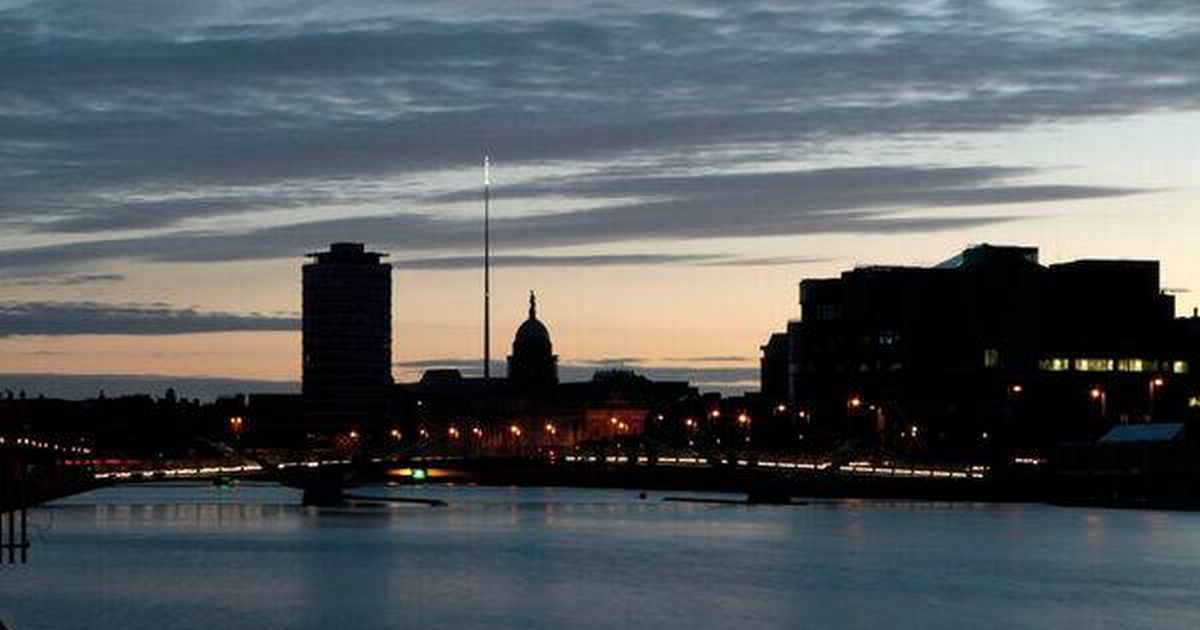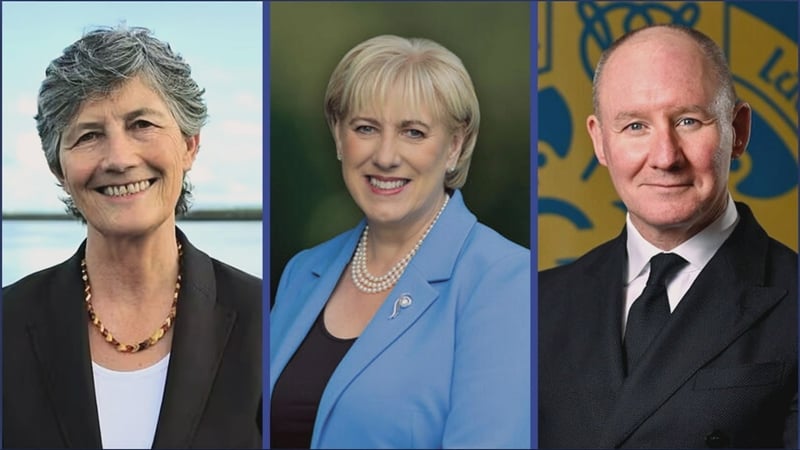Other News
Activist Natasha O’Brien among cast in new Virgin Media show

Read more on post.
Activist Natasha O’Brien is set to feature in Virgin Media’s new programme, Dinner with the Enemy.
The show, which kicks off on Monday 6 October, will span six weeks and is a larger version of the original Irish format, Eating with the Enemy. Up to 10 individuals with contrasting views and opinions will engage in a week of heated debate and discussion, while psychotherapists Daniella Moyles and Dr Richard Hogan observe from the sidelines, analysing every look, outburst, and silence.
Joining Natasha on the line-up is Andy Lee, a self-made man hailing from Dublin’s inner city who has risen from extreme poverty to become Ireland’s most renowned adult film star. The cast also includes Amy Nicole Byrne, a law graduate from Dublin, currently holds the position of practice manager for a veterinary team, reports the Irish Mirror.
Ben Scallan, another Dubliner, serves as a political correspondent for Gript Media, while Jacob Donegan from Meath works as a tyre mechanic. Other participants include activist and founding member of Dublin Pride and NorthWest Pride Izzy Kamikaze from Leitrim and Dublin, Fiona McCormack from Cavan, who cares for people with intellectual disabilities, and motivational speaker Tayem Mercer, based in Dublin.
Sophie McGuinness, a model and podcaster from Dublin, and Architectural Technologist Dermot Collins, from Laois, will also be appearing on the show. Throughout the series, these dinner guests will gather around the table to delve into cultural talking points, as well as ethical and societal dilemmas.
The series will incorporate challenges aimed at probing the group dynamics at the table. Topics like groupthink, teamwork, unconscious bias, prejudice, and power dynamics will be scrutinised and permitted to unfold as the experiment poses the question: once we strip away assumptions, labels, and political affiliations, can we see each other as humans rather than villains?
Join our Dublin Live breaking news service on WhatsApp. Click this link to receive your daily dose of Dublin Live content. We also treat our community members to special offers, promotions, and adverts from us and our partners. If you don’t like our community, you can check out any time you like. If you’re curious, you can read our Privacy Notice.
For all the latest news from Dublin and surrounding areas visit our homepage.
Other News
Áras candidates voice support for a united Ireland
Other News
Social welfare: Hinted €500 Budget 2026 hike that could make real difference

Read more on post.
Budget 2026 is fast approaching, and families right across Ireland are eagerly awaiting news on whether support measures will make a comeback to tackle the relentless cost of living squeeze.
The previous year’s Budget rolled out a massive €1.2 billion social welfare package, featuring one-off lump sums between €100 and €400, double payments like the Christmas bonus, and bumps to weekly welfare rates. On top of that, every household in Ireland bagged €250 knocked off their electricity bills through two separate €125 payments – a lifeline many are desperately hoping will make another appearance this year, especially given that several energy firms have recently slapped customers with price increases, reports the Irish Mirror.
Plenty of people were crossing their fingers for similar handouts this time around – but the Government has now squashed those hopes. Taoiseach Micheál Martin has confirmed there won’t be any “universal” cost of living payments in the forthcoming Budget, set to be revealed on Tuesday, October 7.
Finance Minister Paschal Donohoe was even more blunt, declaring the Government “will not repeat” last year’s bonus payments and welfare increases. That means schemes like cost of living lump sums, double welfare payments, and the twin €125 energy credits are highly unlikely to resurface.
Meanwhile, Public Expenditure Minister Jack Chambers shot down rumours about a fresh €80 energy credit, saying: “I don’t expect them to be part of Budget 2026.” However, a significant €500 credit increase could be on the cards for one group.
Earlier this week, Minister Donohoe said that while no decisions have been made regarding specific measures, he wanted to “emphasise my recognition of the importance” of the rent tax credit. Suggestions are now circulating that the credit, which aids in reducing bills for tenants, could see an increase from €1,000 per person to €1,500.
Initially introduced in 2022 at €500, the credit has since doubled and is now backdated for anyone who missed the initial payment. Minister Donohoe said: “I am well aware of the importance of the rent tax credit and the really valuable role that it has played in supporting tenants with rising rents.
“The rent tax credit is due to come to an end at the end of this year and while no decisions have yet been made on any tax measure, I just emphasise my recognition of the importance of that credit and the role that it plays in supporting tenants.”
The full details of Budget 2026 will be unveiled when Ministers Paschal Donohoe and Jack Chambers officially present the financial package on Tuesday, 7 October.
Join our Dublin Live breaking news service on WhatsApp. Click this link to receive your daily dose of Dublin Live content. We also treat our community members to special offers, promotions, and adverts from us and our partners. If you don’t like our community, you can check out any time you like. If you’re curious, you can read our Privacy Notice.
For all the latest news from Dublin and surrounding areas visit our homepage.
Other News
Exact date clocks go back in Ireland as 5pm darkness looms

Read more on post.
With autumn now firmly established, the telltale signs of the changing season are becoming increasingly evident. Mornings arrive with a sharp chill, evenings are closing in more rapidly, and temperatures are gradually beginning to fall.
Alongside the cooler conditions, another seasonal change looms on the horizon – the conclusion of daylight saving time. For many, this development brings conflicting emotions.
On the positive side, we gain an additional hour of rest when the clocks retreat – a delightful bonus, particularly as the mornings grow more bitter. However, on the negative side, earlier sundowns mean extended evenings confined indoors and gloomier journeys home.
This year, the clocks across Ireland will retreat by one hour on Sunday, October 26, signalling the conclusion of daylight saving time. The previous adjustment occurred on Sunday, March 30, when the clocks advanced by one hour.
According to timeanddate.com, sunset today occurs at 7.10pm, declining steadily to 6.54pm by next Saturday, October 4. By Sunday, October 26, the evening will grow dim even sooner, with sundowns occurring at 5.04pm – the day the clocks alter, reports the Irish Mirror.
Mobile phones and digital watches will adjust automatically on Sunday, October 26 at 2am, retreating to 1am, though conventional timepieces will require manual modification. The tradition of “falling back” was initially established to maximise the use of natural daylight.
While mornings grow brighter and provide us with an additional hour of illumination, evenings inevitably grow dim sooner, transforming our daily patterns as the season shifts. All EU member states, bar Iceland which sticks to Western European Time all year round, adjust their clocks at this time.
In 2019, the European Union voted with the possibility of putting an end to Daylight Saving Time after 2021, following a survey that revealed most people would rather not change their clocks twice annually. However, due to the Covid pandemic, this decision was postponed.
EU institutions have yet to make headway on implementing this decision, and the European Commission has stated it has no plans to present a new proposal on the matter to Parliament. Looking forward, next year will see the clocks spring forward on Sunday, March 29, and fall back on Sunday, October 25 – maintaining the familiar seasonal rhythm.
Join our Dublin Live breaking news service on WhatsApp. Click this link to receive your daily dose of Dublin Live content. We also treat our community members to special offers, promotions, and adverts from us and our partners. If you don’t like our community, you can check out any time you like. If you’re curious, you can read our Privacy Notice.
For all the latest news from Dublin and surrounding areas visit our homepage.
-
Politics4 days ago
European Parliament snubs Orbán with vote to shield Italian MEP from Hungarian arrest
-
Culture2 months ago
Fatal, flashy and indecent – the movies of Adrian Lyne revisited
-
Culture3 weeks ago
Life, loss, fame & family – the IFI Documentary Festival in focus
-
Environment1 week ago
Key oceans treaty crosses threshold to come into force
-
Health5 days ago
EU renews support for WHO’s Universal Health Coverage Partnership
-
Culture1 week ago
Farewell, Sundance – how Robert Redford changed cinema forever
-
Culture4 days ago
Twilight at 20: the many afterlives of Stephenie Meyer’s vampires
-
Culture4 weeks ago
What is KPop Demon Hunters, and why is everyone talking about it?















































